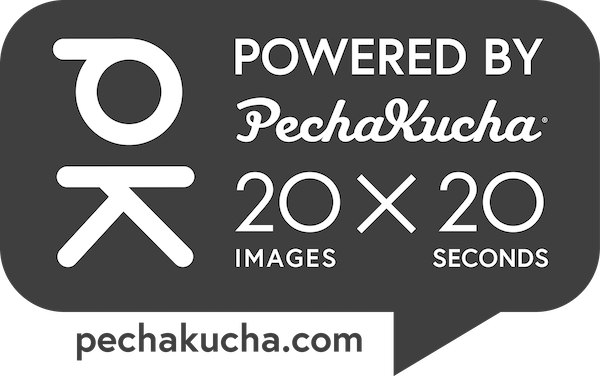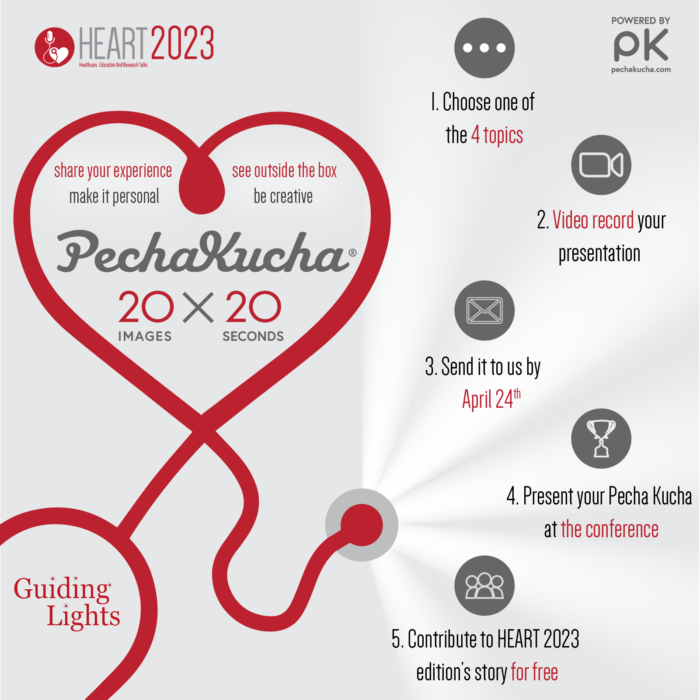Talks from the HEART
Your chance to be an active participant at HEART 2023

HEART believes that change starts with all of us. So, we invite you to bring forward your ideas in this year’s edition of Pecha Kucha.
What is Pecha Kucha?
The Pecha Kucha (Japanese for “chit chat”) 20×20 display entails 20 images automatically advancing every 20 seconds, guiding your speech and offering you 400 seconds to speak your mind on the 4 specially curated themes. See the official PechaKucha website for more information.
What you need to do:
Submit a video of your speech and show us your perspective by the 24th of April.
What are the prizes?
Accepted presenters will get free participation at HEART 2023 and become speakers for a day, able to put forward their ideas in front of the audience as well as internationally acclaimed speakers.
Take a chance and speak your mind, even if your voice shakes!

Pecha Kucha's Topics - 2023 edition
Snowed under information: a blessing or a curse?
The technology era offers an outstanding advantage- easily accessible and widely available information. But while the way of acquiring data may seem to advance perfectly and logically, the downsides of its fast pace, grand quantity, and little safety begin to show.
Can our minds endure the pressure of being updated with our preferred knowledge while being distracted by subjects, not in our areas of interest? Are we able to always distinguish truth from lie and filter out the unnecessary? Do we need all the information we can access and how long will it take before it becomes harmful?
Coping mechanism vs self-indulgence
Mental health and self-care are becoming more recognized as indispensable to living a healthy life. Nowadays they are prioritized and considered by some as remedies that improve one’s overall quality of life and might even prevent or alleviate certain disorders, somatic or psychological, especially those stress-induced. However, they might be judged from a different perspective, as an excuse for self-indulgence. Could this lead to another underlying problem, of becoming so absorbed by solutions to degrees of a state of stagnation and detrimental behaviors that might be perceived as comfort and safety?
Social media: a not enough studied risk factor
In recent years, the usage of social media has sky-rocketed amongst both adults and children. In 2022 approximately four billion people were using various platforms of modern communication and self-presentation. However, we as a society have mostly been unaware of the downsides of these networks. The emotional and intellectual toll they take on their users, the moral ambiguity of certain subjects, the ease of access to inappropriate content, and the paradoxical social disconnection are just a few of the threats that social media poses. Should these consequences be taken into account and controlled to counter the long-term effects on young generations?
From teaching to mentoring: how fine/ narrow of a line?
A teacher is by definition someone who educates someone, especially from an academic standpoint. The mentor, however, is supposed to be an experienced and trusted advisor. One could say the difference lies in the dynamic of the professional relationship with their students. Are these definitions enough to capture the complexity of such important mind-shapers? Considering that teachers educate all, can somebody be a trusted advisor to so many or should they limit their guidance to just a few? Is mentorship an innate quality or can it be acquired by trial and error?
